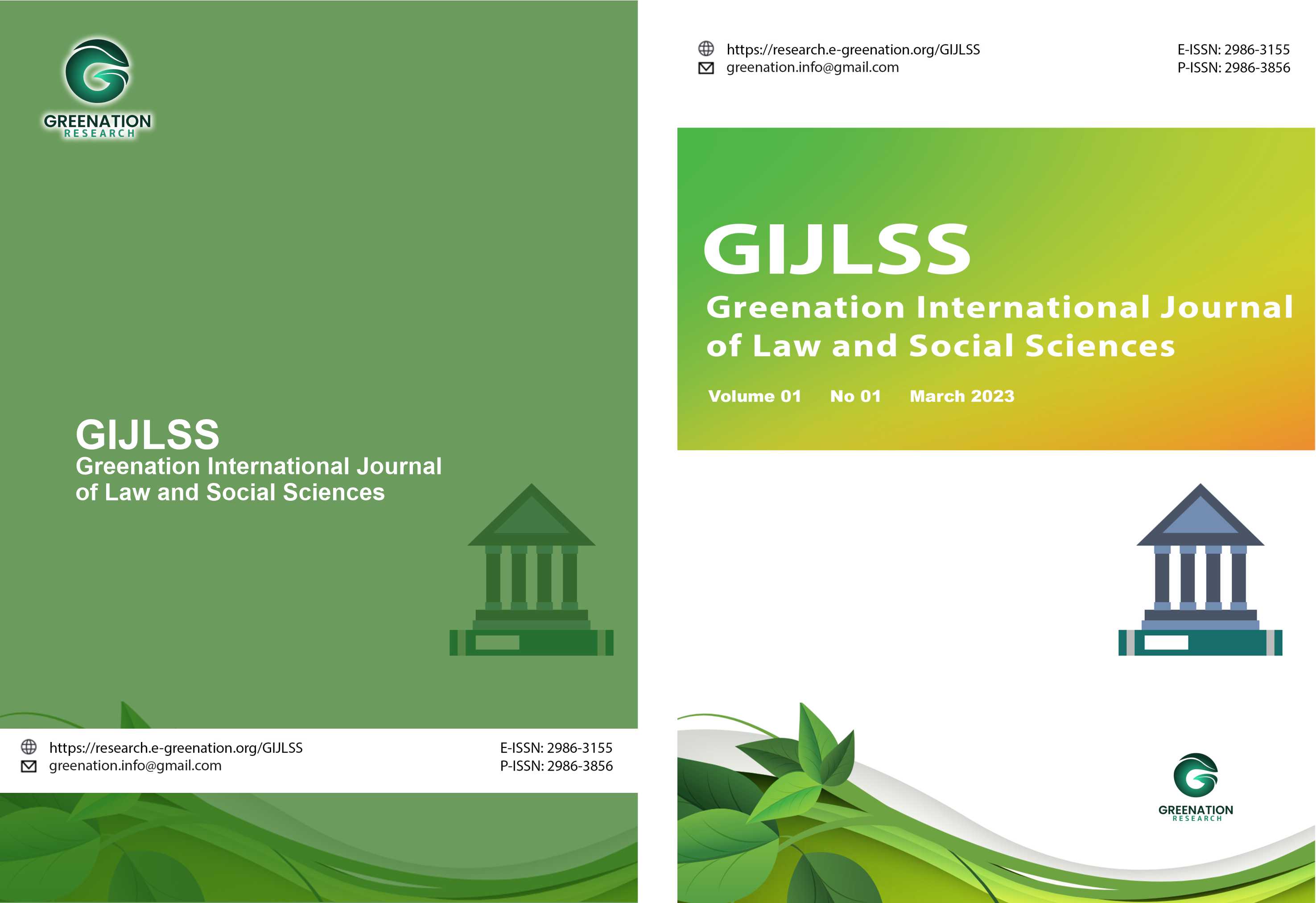Legal Protection for Advocates in Carrying Out the Legal Profession in Indonesia
DOI:
https://doi.org/10.38035/gijlss.v1i2.122Keywords:
Advocate, Good faith, ImmunityAbstract
Advocates are a profession that has an important role in the law enforcement process in society. Advocates are part of the legal structure that cannot be separated from other law enforcement apparatus, such as: police, prosecutors and courts. The profession of an advocate in society is always equated with that of his clients, so that violations committed by clients are always linked to violations committed by an advocate. This can be interpreted causally as: a client's violation is the same as an advocate's violation, even though the actions carried out by the advocate are solely to carry out the client's trust and the mandate of the law. The problem raised in this research is the concept of legal immunity that can be given to advocates in carrying out the duties of the legal profession in Indonesia. The research was carried out in a normative juridical manner based on secondary data as research material so that it focused on theoretical speculative steps, normative analysis and qualitative analysis. Research results Qualification of legal immunity which can free advocates from legal sanctions in assisting clients can be carried out as long as the advocate carries out actions in the context of carrying out professional duties and functions. The good faith possessed by advocates as a basis for protection must be guaranteed in the statutory regulatory system. The binding legal relationship between advocates and clients can be used as a basis for providing legal protection to advocates while carrying out professional duties and functions. The Advocates Law substantively does not provide optimal protection against every form of legal risk that threatens the existence of the advocate profession.
References
Eleanora, F.N. (2016). Advocate Code of Ethics as a Guide to Law Enforcement. SCIENTIFIC JOURNAL OF LAW AND SOCIETY DYNAMICS , 12 (1).
J. Supranto, Legal and Statistical Research Methods, Rineka Cipta, Jakarta, 2000,
Advocates Act
Widijowati, D. (2023). The Crime of Corruption Codified in Law Number 1 of 2023. Journal of Law and Sustainable Development, 11(11), e1859. https://doi.org/10.55908/sdgs.v11i11.1859
Widijowati, R. D. . (2023). Application of Compensation Money Legal Sanctions in Corruption Crimes in Indonesia and the United States. INFLUENCE: INTERNATIONAL JOURNAL OF SCIENCE REVIEW, 5(2), 209–216. https://doi.org/10.54783/influencejournal.v5i2.150
Widijowati, D. (2018). Pengantar Ilmu Hukum. Yogyakarta, CV Andi Offset.
Widijowati, D. (2023). Preserving Artistic Legacies: Legal Safeguards for Intellectual Property Rights in the Music Industry. Research Horizon, 3(3), 164–171. https://doi.org/10.54518/rh.3.3.2023.164-171
Yudistira, I. W. A., & Widijowati , R. D. (2023). Evidence Using Forensic Laboratory in Revealing the Crime of Murder. Journal of Law, Politic and Humanities, 3(3), 330-342. https://doi.org/10.38035/jlph.v3i3.225
Abdul Ghofur Anshori, Legal Philosophy, History, Flow and Meaning, Gadjah Mada University Press, Yogyakarta, 2006
Theo Huijbers, Legal Philosophy in Historical Trajectories ,
Sumadi, Research Methods, Rajawali, Jakarta, 1988
Soerjono Soekanto, Normative Legal Research: A Brief Overview, Raja Grafindo Persada, Jakarta, 1995
Downloads
Published
How to Cite
Issue
Section
License
Copyright :
Authors who publish their manuscripts in this journal agree to the following conditions:
- Copyright in each article belongs to the author.
- The author acknowledges that the Greenation International Journal of Law and Social Sciences (GIJLSS) has the right to be the first to publish under a Creative Commons Attribution 4.0 International license (Attribution 4.0 International CC BY 4.0).
- Authors can submit articles separately, arrange the non-exclusive distribution of manuscripts that have been published in this journal to other versions (for example, sent to the author's institutional repository, publication in a book, etc.), by acknowledging that the manuscript has been published for the first time at GIJLSS.























